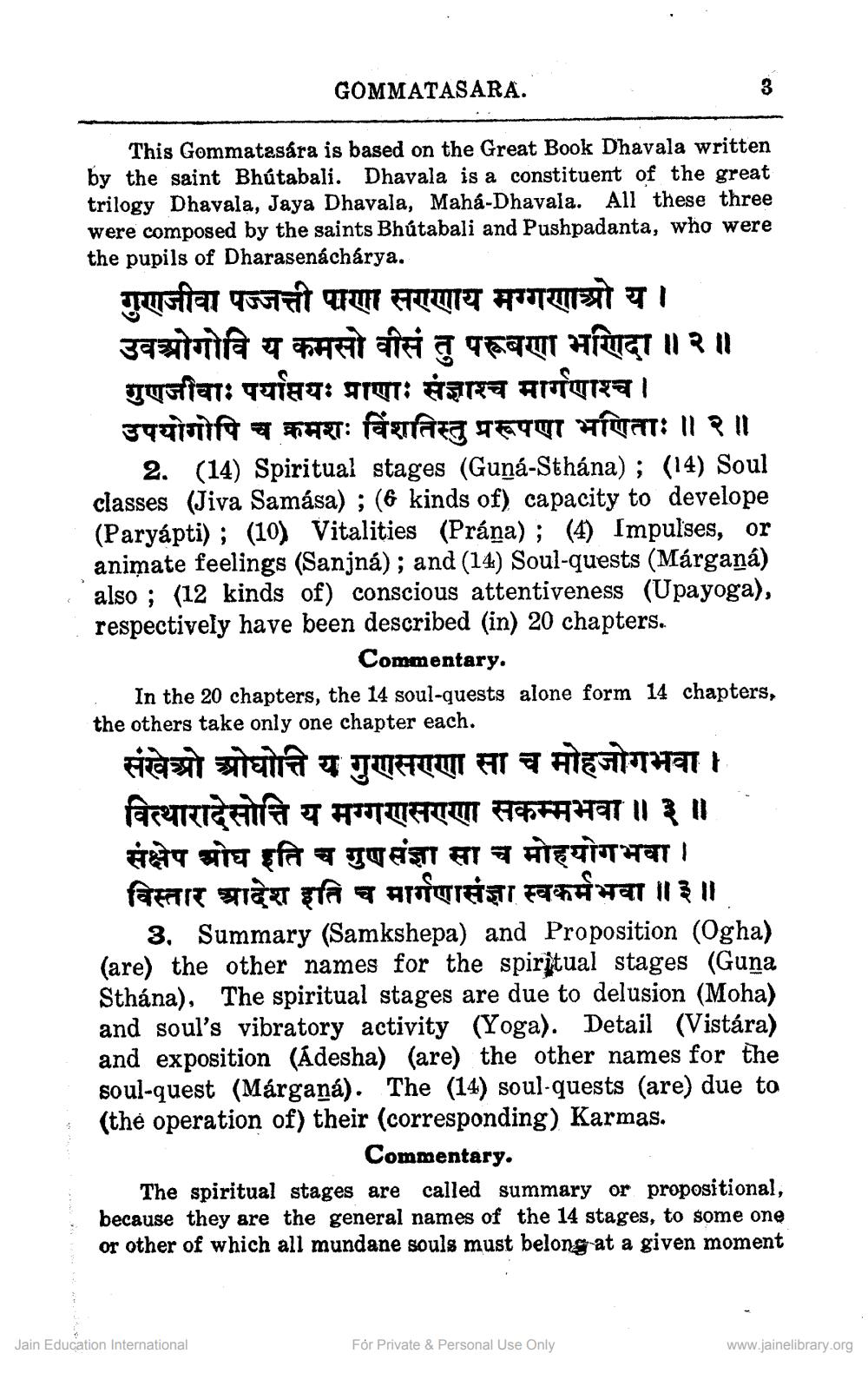________________
GOMMATASARA.
This Gommatasára is based on the Great Book Dhavala written by the saint Bhútabali. Dhavala is a constituent of the great trilogy Dhavala, Jaya Dhavala, Maha - Dhavala. All these three were composed by the saints Bhútabali and Pushpadanta, who were the pupils of Dharasenáchárya.
गुणजीवा पज्जत्ती पारणा सरणाय मग्गणात्र य । उवओगोविय कमसो वीसं तु परूवणा भणिदा ॥ २ ॥ गुणजीवाः पर्याप्तयः प्राणाः संज्ञाश्च मार्गणाश्च । उपयोगोपि च क्रमशः विंशतिस्तु प्ररूपणा भणिताः ॥ २ ॥
2. (14) Spiritual stages (Guná-Sthána); (14) Soul classes (Jiva Samása); (6 kinds of) capacity to develope (Paryápti) ; (10) Vitalities (Prána ) ; ( 4 ) Impulses, or animate feelings (Sanjná); and (14) Soul-quests (Márganá) also ; ( 12 kinds of) conscious attentiveness (Upayoga), respectively have been described (in) 20 chapters.
Commentary.
In the 20 chapters, the 14 soul-quests alone form 14 chapters, the others take only one chapter each.
संखे घोत्तिय गुणसराणा सा च मोहजोगभवा । वित्थारादेसोति य मग्गासराणा सकम्मभवा ॥ ३ ॥ संक्षेप ओघ इति च गुणसंज्ञा सा च मोहयोग भवा । विस्तार आदेश इति च मार्गणासंज्ञा स्वकर्मभवा ॥ ३ ॥
3
3. Summary (Samkshepa) and Proposition (Ogha) (are) the other names for the spiritual stages (Guna Sthána), The spiritual stages are due to delusion (Moha) and soul's vibratory activity (Yoga ). Detail ( Vistára) and exposition (Adesha) (are) the other names for the soul-quest (Márganá). The (14) soul-quests (are) due to (the operation of) their (corresponding) Karmas.
Jain Education International
Commentary.
The spiritual stages are called summary or propositional, because they are the general names of the 14 stages, to some one or other of which all mundane souls must belong at a given moment
For Private & Personal Use Only
www.jainelibrary.org




